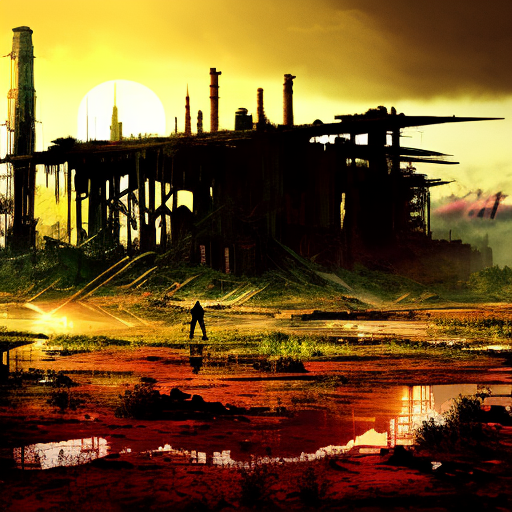The World Without Us: A Glimpse into a Post-Human Earth
Imagine a world where humans suddenly vanish, leaving behind the remnants of their civilization. In “The World Without Us,” Alan Weisman takes readers on a captivating journey through time, exploring what would happen to our planet if humanity were to disappear. From the gradual decay of our cities to the resurgence of nature, this thought-provoking book offers a unique perspective on the intricate relationship between humans and the environment.
The Erosion of Human Influence
Weisman begins by examining the immediate consequences of our disappearance. Without human intervention, infrastructure such as dams, bridges, and roads would crumble, and our cities would gradually succumb to the forces of nature. As plants and trees reclaim their territory, buildings would be engulfed by vegetation, and wildlife would thrive in the absence of human interference. Weisman highlights the resilience of nature and the fleeting nature of our impact on the Earth.
The Resurgence of Nature
As time progresses, Weisman delves into the long-term effects of our absence. He explores how ecosystems would evolve and adapt in the absence of human activity. From the resurgence of wolves in Europe to the flourishing coral reefs in the Caribbean, Weisman paints a vivid picture of a world where nature reclaims its dominance. He emphasizes the interconnectedness of all living beings and the delicate balance required for a thriving planet.
The Legacy We Leave Behind
While the focus of the book is on a world without humans, Weisman also examines the lasting impact of our presence. He delves into the environmental damage caused by our industrial activities, such as pollution and deforestation. Weisman raises important questions about our responsibility to the planet and the legacy we leave for future generations. Through his exploration, he highlights the urgent need for sustainable practices and environmental stewardship.
In this thought-provoking journey through time, “The World Without Us” forces readers to confront the fragility of our planet and the profound impact of human activity. Weisman’s meticulous research and engaging storytelling make this book a captivating read for anyone interested in the environment and our place in it.
Key takeaways from “The World Without Us”:
- Human influence on the planet is temporary and can be easily erased by the forces of nature.
- Nature has an incredible ability to adapt and thrive in the absence of human interference.
- Our industrial activities have caused significant environmental damage, highlighting the need for sustainable practices.
- We have a responsibility to be good stewards of the Earth and consider the long-term consequences of our actions.
As Weisman eloquently states, “The world without us is not about a world without us – it’s about what happens to the world without us.” This quote encapsulates the central theme of the book, reminding us of the intricate relationship between humans and the environment. “The World Without Us” serves as a wake-up call, urging us to reflect on our impact on the planet and the steps we can take to create a more sustainable future.












